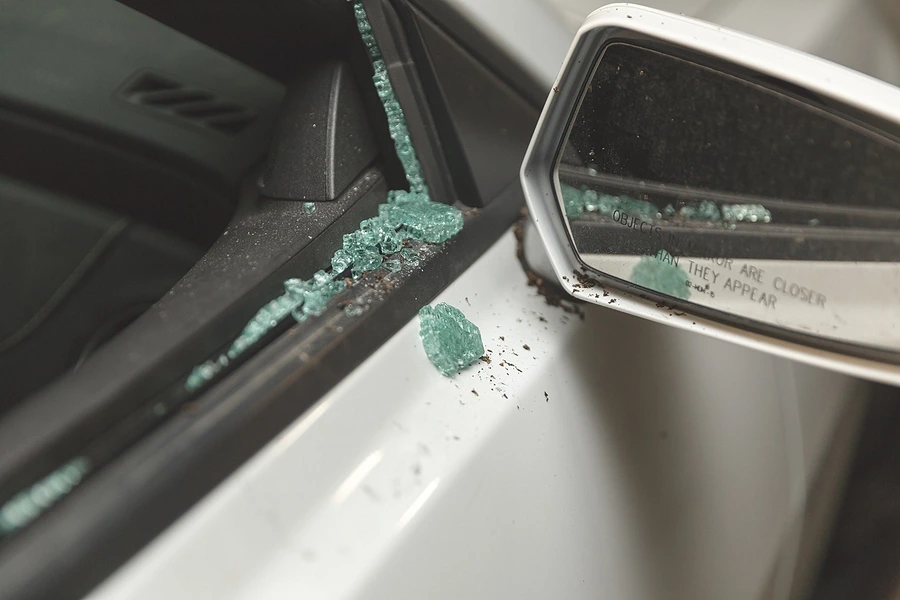The Legal Challenges of Hit-and-Run Accident Claims

Getting into a car accident is bad enough. But when the other driver speeds off without stopping, it leaves victims with even more uncertainty. Hit and run accidents are frustrating, confusing, and often leave injured people wondering what to do next. For those in Orlando, where traffic congestion and tourism-related driving risks are common, these types of crashes happen more than many realize.
If you’ve been hurt in a hit and run, the legal process to get compensation can be more complicated than in a typical accident. Here’s what you should know about the unique legal challenges these cases present and what steps can help protect your rights.
Why Some Drivers Flee the Scene
Hit and run crashes can happen in parking lots, side streets, major intersections, or even on highways. Some involve only property damage, while others result in serious injuries or fatalities. In many cases, the driver leaves the scene because they want to avoid legal consequences.
Common reasons why drivers flee include:
-
Driving without a license
-
Being under the influence of drugs or alcohol
-
Lacking valid insurance
-
Having an active warrant or suspended license
-
Fear of getting arrested or fined
Whatever the reason, fleeing the scene of an accident is a crime under Florida law. But even though it’s illegal, hit and run crashes are still a daily occurrence in Orlando and across the state.
Challenges in Identifying the Driver
The biggest legal hurdle in a hit and run case is identifying the person who caused the crash. In many accidents, the at-fault driver remains at the scene, provides insurance information, and takes responsibility. But when they flee, it becomes harder to hold anyone accountable.
Sometimes, police can track down the driver through eyewitness reports, surveillance footage, traffic cameras, or even vehicle debris left behind. In other cases, tips from the public or nearby businesses help law enforcement make an identification.
However, not every hit and run is solved. If the driver is never found, you may have to rely on your own insurance coverage to recover damages. This adds another layer of complexity to the process.
Relying on Your Own Insurance After a Hit and Run
When the at-fault driver is unknown, the burden of recovery often falls on your own insurance policy. In Florida, drivers are required to carry Personal Injury Protection (PIP) insurance, which pays for medical expenses and certain lost wages—regardless of fault. This provides a starting point, but it may not be enough to cover all your damages.
To protect yourself in situations like this, it’s important to consider Uninsured Motorist (UM) coverage. UM insurance steps in when the at-fault driver is either uninsured or can’t be identified—such as in a hit and run. This coverage can help pay for:
-
Medical bills
-
Ongoing treatment
-
Lost income
-
Pain and suffering
Not every policy includes UM coverage automatically. If you have it, it can make a major difference in your ability to recover compensation. If you don’t have it, the options may be more limited.
Dealing with Insurance After a Hit and Run
Even when you’re dealing with your own insurance company, the process isn’t always easy. Insurers may require detailed documentation, recorded statements, or proof that the accident wasn’t your fault. You may also need to prove that a hit and run occurred.
In some cases, insurance adjusters may offer less than what your claim is worth or delay the process. This is especially true in hit and run cases where the facts are unclear or where the insurance company suspects fraud. Working with an attorney can help you push back against unfair denials or low settlement offers.
When Police Reports and Evidence Make a Difference
One of the most important things you can do after a hit and run is to file a police report as soon as possible. In Florida, you are required to report any crash involving injury or property damage. In a hit and run case, the police report can serve as the foundation of your claim.
Try to remember as much as possible about the vehicle that hit you. Even small details—like the make, model, color, direction of travel, or part of the license plate—can help investigators. Take photos of the scene, including damage to your vehicle, skid marks, or surrounding areas.
If you were injured, seek medical care right away. Your medical records will help show the connection between the crash and your injuries, which can support both your PIP and UM claims.
Time Limits and Legal Deadlines
In Florida, there is a time limit on filing personal injury claims. For hit and run victims, this statute of limitations can vary depending on the circumstances. As of recent changes in Florida law, injured parties typically have two years from the date of the crash to file a lawsuit. But some insurance policies have shorter deadlines for filing claims, especially when it comes to UM benefits.
The sooner you start the claims process, the better your chances of protecting your rights. Delaying medical care, waiting to file a police report, or missing important deadlines can all weaken your case.
When a Hit and Run Turns Fatal
Sadly, some hit and run accidents in Orlando result in fatalities. In these cases, the victim’s family may be able to file a wrongful death claim. This type of case allows surviving family members to seek compensation for funeral costs, lost future income, emotional loss, and other damages.
As with injury claims, a wrongful death case becomes more difficult if the at-fault driver is never found. Insurance policies with UM coverage may still provide benefits in these situations, but families often need help navigating the legal and insurance systems.
What a Personal Injury Lawyer Can Do
Hit and run accidents are legally complex. From dealing with your insurance company to tracking down a missing driver, there are many moving parts. An experienced personal injury attorney can help by:
-
Investigating the crash and working with law enforcement
-
Gathering evidence to support your claim
-
Reviewing your insurance coverage
-
Handling communication with insurance companies
-
Filing legal documents on time
Most personal injury lawyers in Orlando offer free consultations and only get paid if you win your case. That means there’s little risk in speaking with one to understand your options.
Conclusion
You can’t always prevent a hit and run. But you can take steps to protect yourself:
-
Check your policy to confirm you have UM coverage
-
Consider adding collision coverage if you don’t already have it
-
Install a dashcam for added evidence
-
Keep your insurance documents and emergency contacts in your car
If you’re ever involved in a hit and run, stay calm, call the police, and get medical care. Then speak with a lawyer who understands the challenges of these cases and can guide you through the process.
In a city like Orlando, where traffic is heavy and accidents are frequent, being prepared and knowing your rights can make all the difference.

 Call Us Today - It's Free
Call Us Today - It's Free